Forget heat pumps, get a bike and go vegan!
Or maybe it's hard, comparing apples, oranges, and puppy dogs.
I posted a slide from Jay Olson’s presentation at the Retrofit Canada Conference in my last post and on Bluesky with the note, “I think my favourite slide from the whole #retrofitcanada25 conference today was this one from Jay Olson, showing how just giving up the f***g car is almost three times as good as going vegan or buying a heat pump.”
This drew a disbelieving response: “Is there any actual evidence for this? Sorry, I mean is there any actual f***g evidence for this, Lloyd? A photo of a slide doesn't really cut it.”
I thought he had a point. We don’t often compare getting a heat pump to changing our diet or to giving up driving, but I sort of did that in my book, Living the 1.5 Degree Lifestyle, (see the great deal at the bottom of the post!) where I found that giving up driving and red meat had the biggest impact on my carbon emissions, significantly more than my per capita share of the gas boiler heating my house.
Olson’s slide was based on a 2020 study led by Diana Ivanova, Quantifying the potential for climate change mitigation of consumption options which found that “that the top ten consumption options together yield an average mitigation potential of 9.2 tCO2eq/cap, indicating substantial contributions towards achieving the 1.5 °C–2 °C target, particularly in high-income context.” And yes, going vegan or getting a heat pump had significantly significantly less impact than going car free.
Many different articles and news sources reworked the results of the study to make them easier to understand, and they all use the same numbers, which raised a lot of questions for me:
Why is getting a battery-electric car so close to living car-free?
Whey does a heat pump just save .795 of a tonne of CO2 emissions?
Why is a heat pump just 145 kilos better than changing a stove, which is the same as heating with renewables?
A closer look at the study answers some of these questions. It looks at emissions from our consumption, those things that we can control in some way. In the 1.5 degree lifestyle, consumption emissions are estimated to be about 72% of total emissions; the balance are governments buying stuff like F-35 fighters. So the study is only looking at “Changes in household consumption patterns to low-carbon alternatives, such as transport model shifts, home energy reduction and dietary shifts.”
The study authors did a “systematic review of the literature on mitigation potential” going back to 2011, going through thousands of records. They plotted them all out and the numbers we see in the tables above are the arithmetic mean, where you add up all the numbers in the dataset and divide by the size of the dataset, what we normally think of as an average.
Now look at the spread on the various data points on the Shift to BEV, going from -2 tonnes to close to plus 6 tonnes. They are all over the map, as most data on EVs was back in those years between 2011 and 2020. Look at how it has shifting to a BEV is better than shifting to public transport.
The study claims that the variability comes from carbon intensity of the electricity mix, but even with the average US energy mix, a Tesla still has emissions from the upfront carbon of making it and the power to run it of 131 grams per km travelled. Even with clean electricity, it will still be about 60 or 70 g/km. It’s not better than a bus. Picking the mean among wildly divergent results can result in wildly ridiculous results.
Meanwhile, the heat pump is based on six data points, all from between 2011 and 2020, with no information of what kind of heat pumps, or what is powering them. Look how good renewable energy production is; what if the heat pump is running on solar and wind?
I suspect that the heat pump number is based on old data, old heat pumps, and old electricity mixes, and is significantly underestimating their impact.
I was surprised that “less living space” made such a small difference; it made a huge difference for me. The study discounts downsizing:
“As building size is the most important factor for home energy consumption, downsizing may substantially reduce housing-related emissions and energy use However, there are significant structural (e.g. lack of adequate alternatives), psychological (e.g. attachment) and security barriers (e.g. loss of ownership) related to downsizing.”
Now let’s look at food, where going vegan is clearly the best at 0.8 tonnes of carbon saving. There’s lots of recent research on this; I found that shifting to lower carbon meats (eliminating ruminants like beef and lamb) was was actually better than a vegetarian diet that included cheese and milk products.
Hannah Ritchie and the Our World in Data gang found much the same thing, and quantified it; the impact of dietary change could be huge.
Then again, getting rid of pets is better than getting a heat pump or a bicycle!
I am sorry, I am not trading Dilly for a heat pump, we just got her six months ago and she is just beginning to tolerate me.
Weird things happen when you compare heat pumps to puppies. I don’t think we have to rely on a pile of papers written a decade ago either; real data from the last five years probably show that heat pumps are better and battery electric vehicles are worse than the study found. But outside of my beef with the BEVs, the results are pretty consistent with other studies I have seen. I also concur with their conclusion: We know what to do.
“We find that the large majority of the household carbon footprints can be mitigated with already available low-carbon consumption options. Challenging current patterns of consumption and the societal dynamics through a critical assessment of infrastructural, institutional and behavioral lock-ins and potential rebound effects, therefore, needs to become a priority for successful climate change mitigation.”
Fundamentally, my experience and research while writing my book came up with much the same conclusion as this study: We have to attack on all fronts. Bike-riding heatpumpified vegans without pets have very low carbon footprints.
Speaking of my book….
Special offer!
I do not want to put up a paywall on this site, but it provides a meaningful portion of my income. So here’s a limited time offer: I will send a signed copy of the print edition of “Living the 1.5 Lifestyle” to anyone in the USA or Canada who signs up for a one-year subscription (C$50, cheap at about US$35 ).
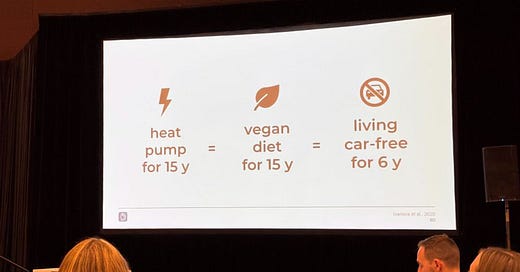




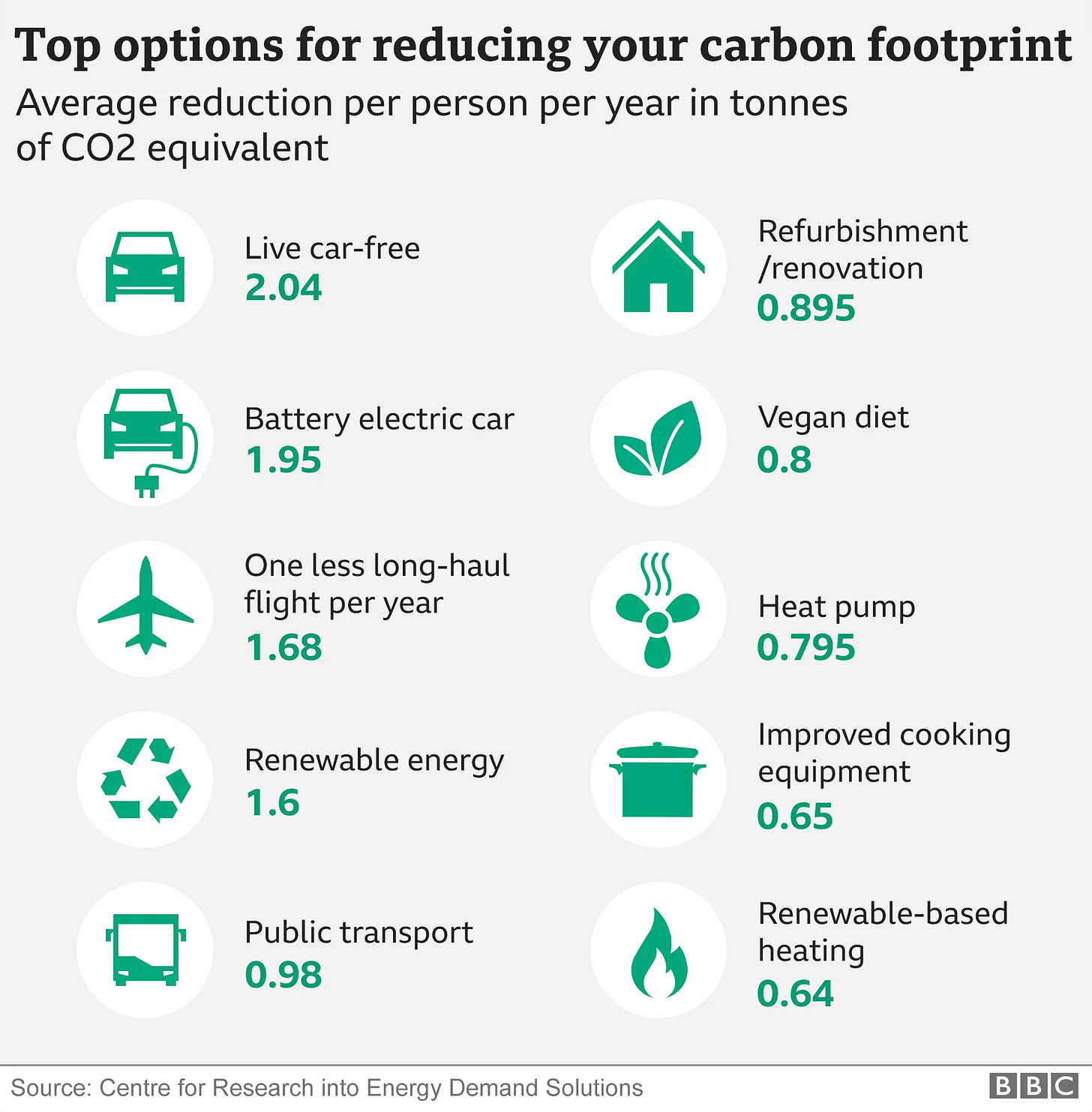
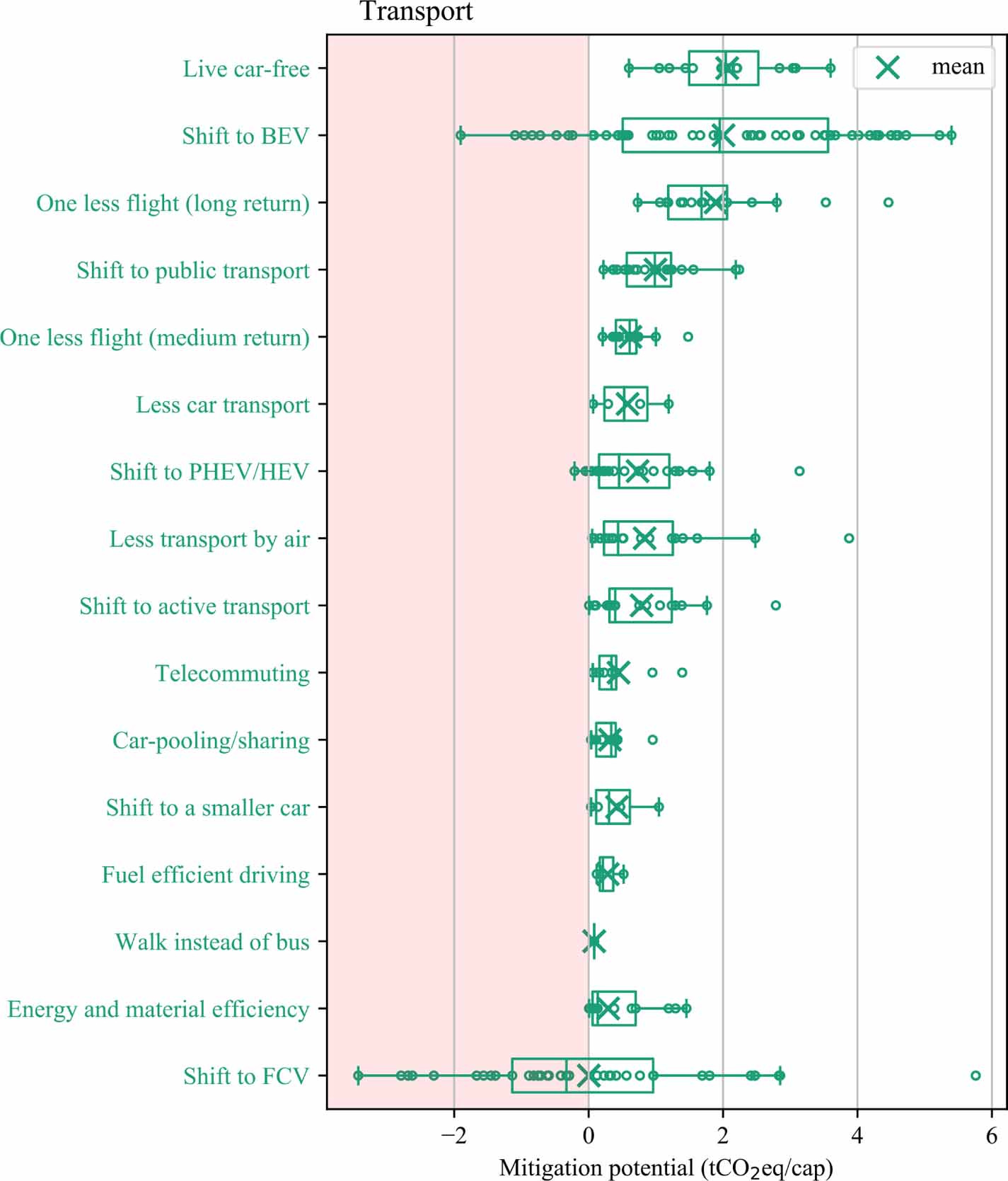
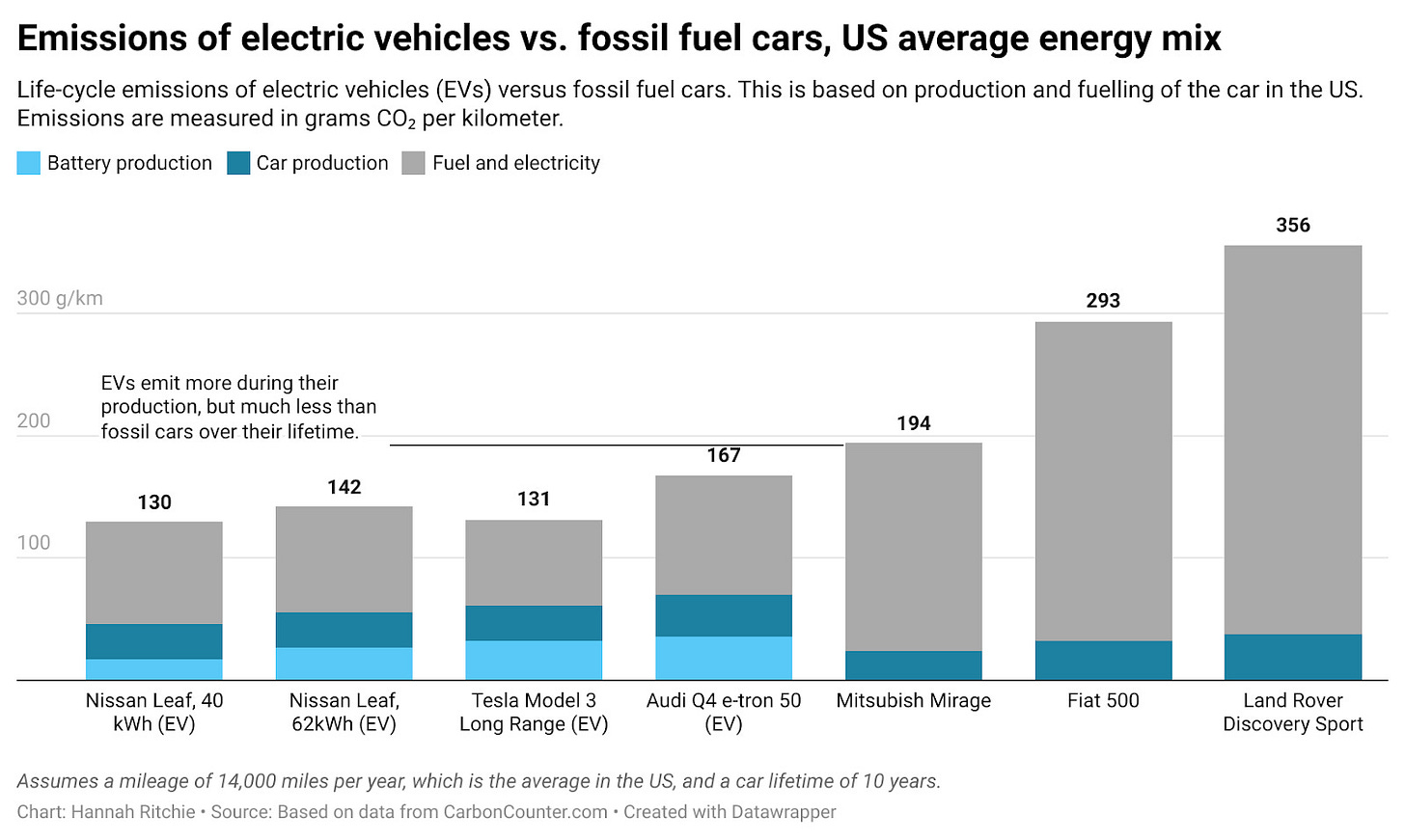
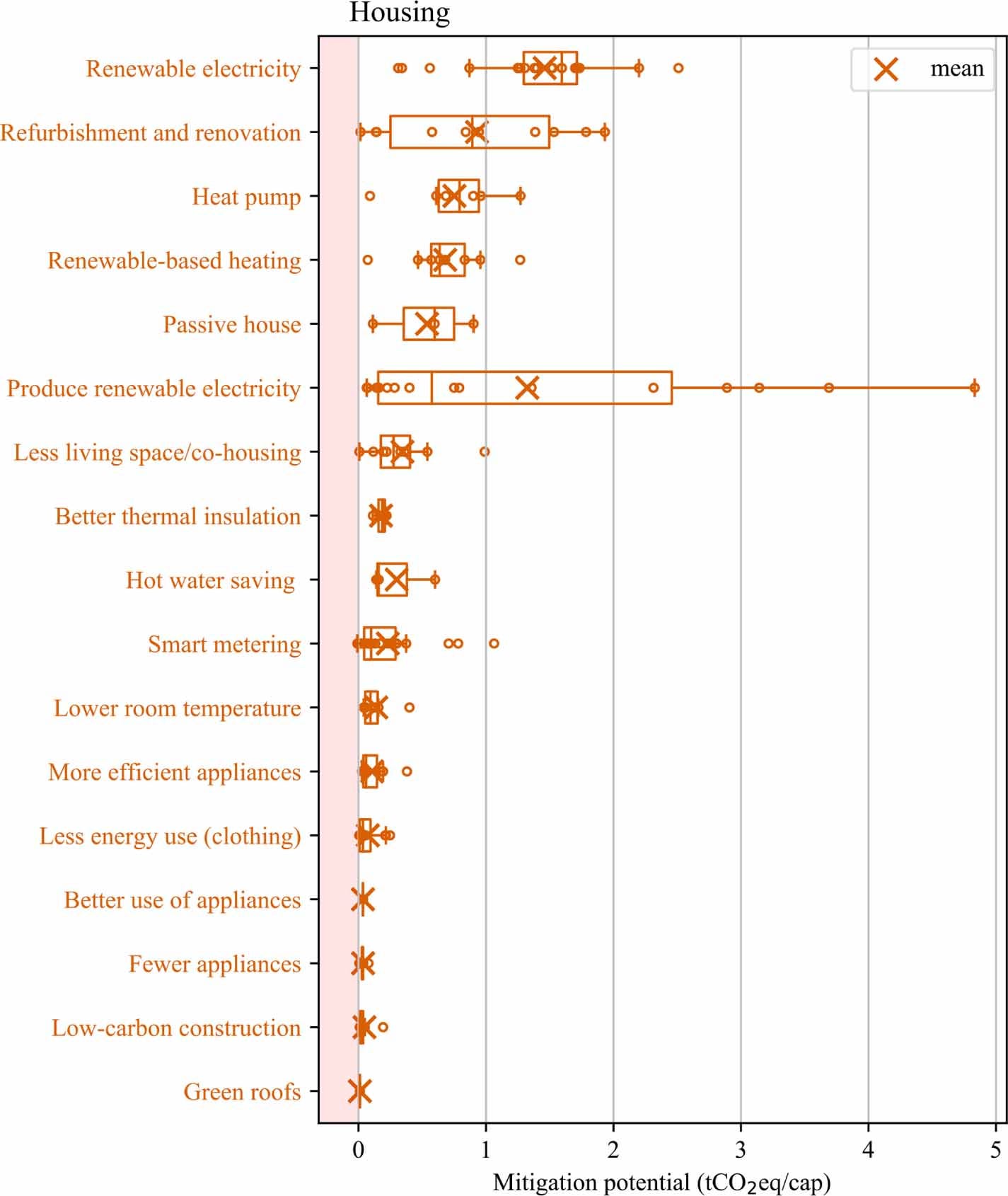
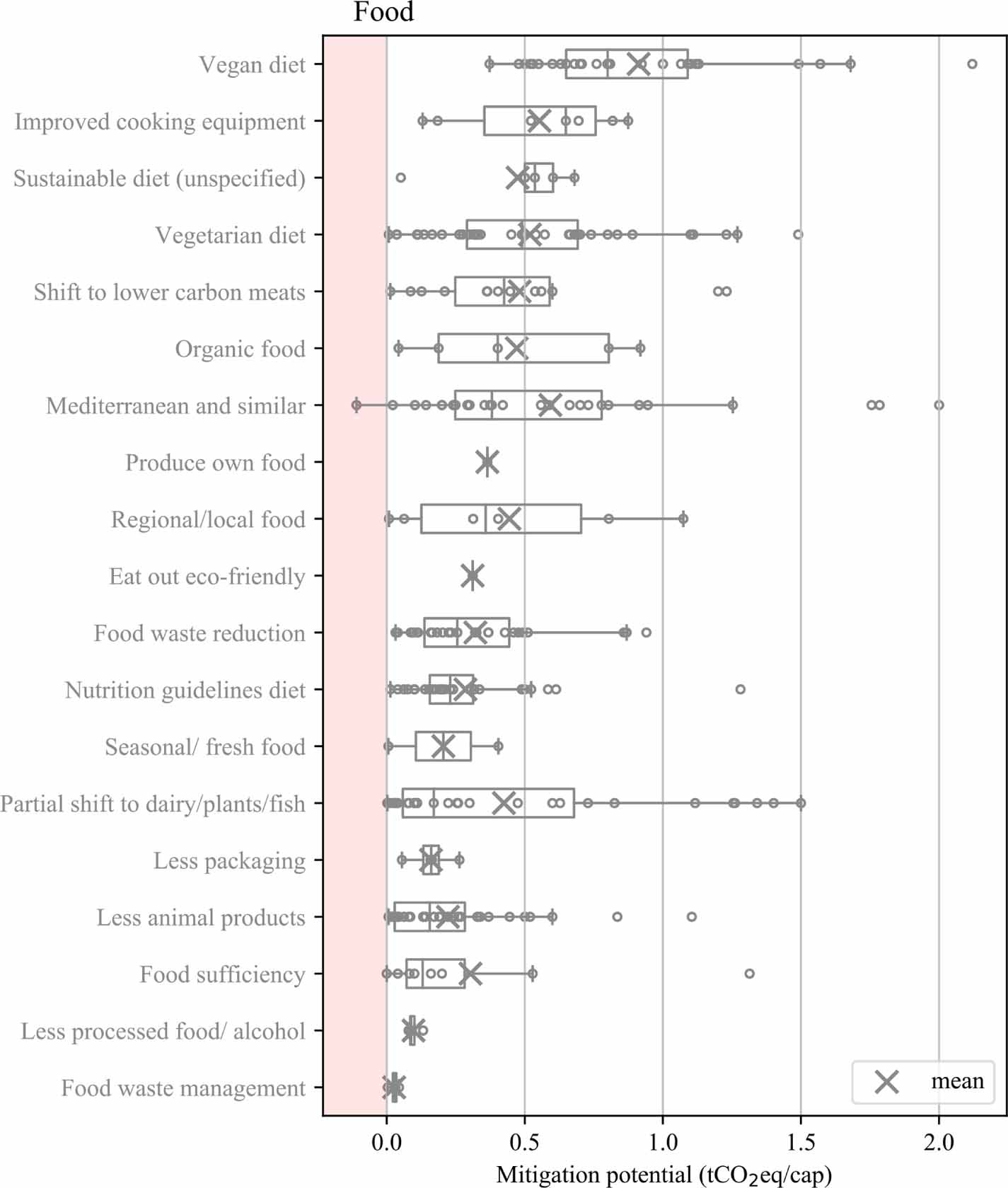
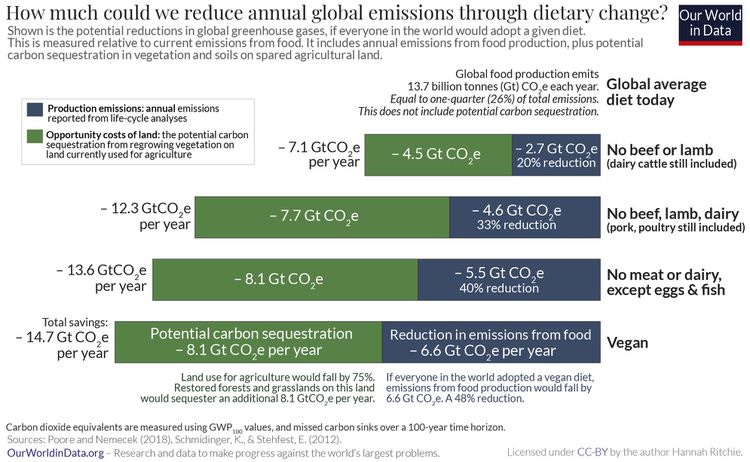
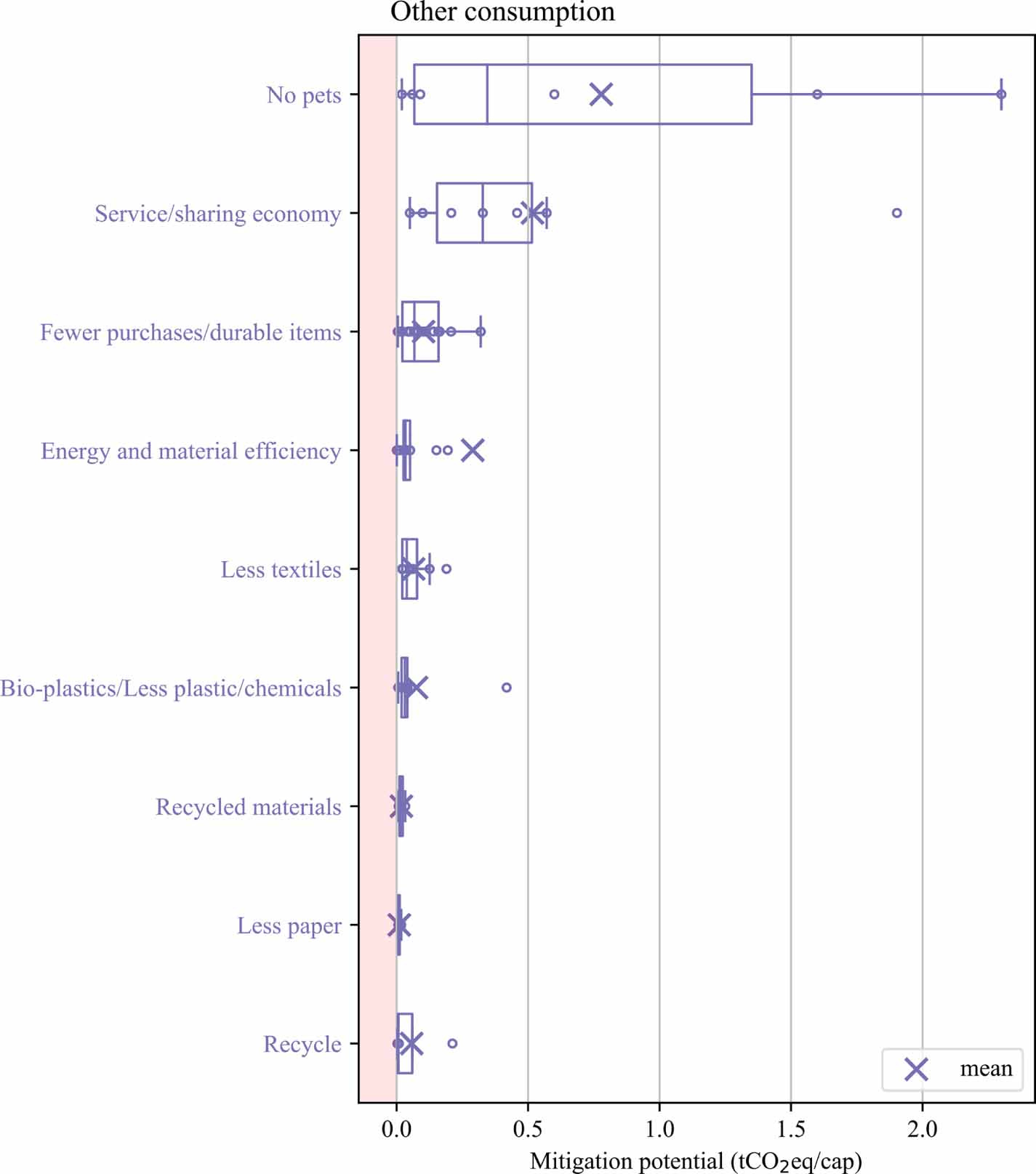

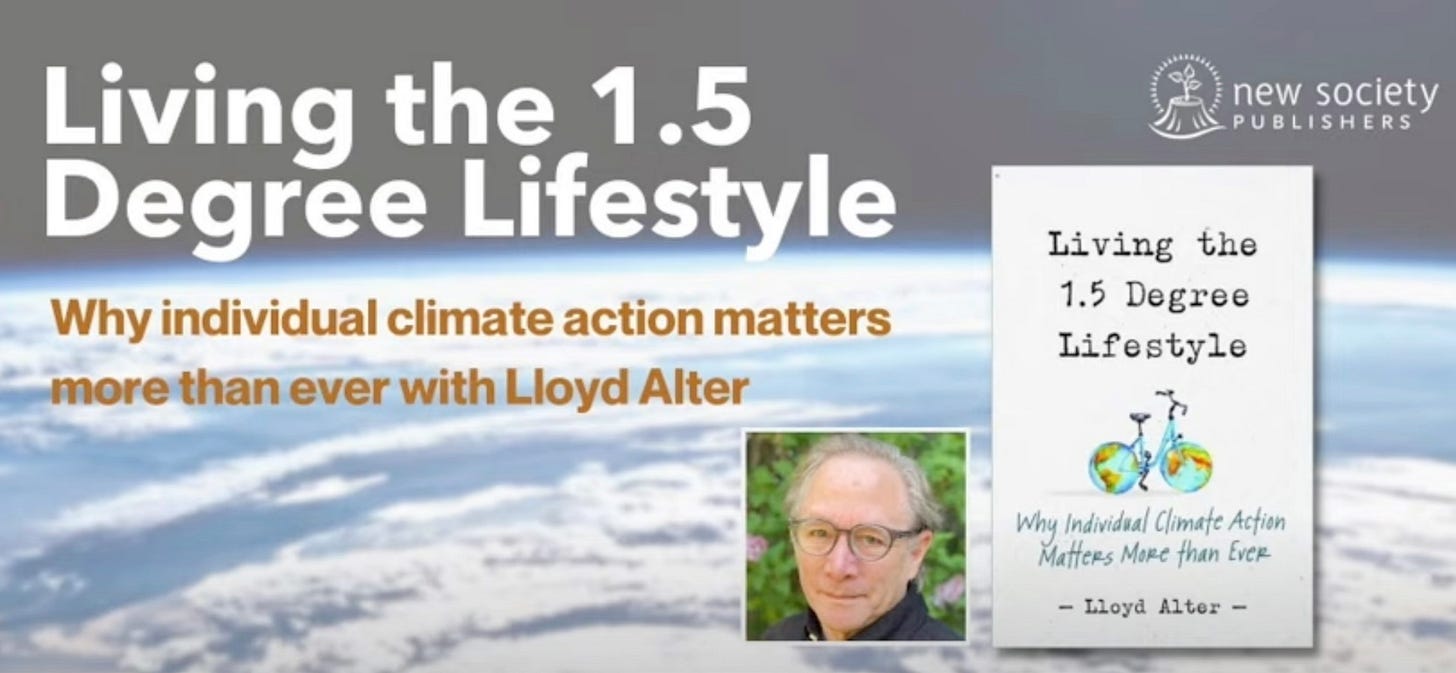
Obviously, some carbon reduction actions are much easier than others. We've found not flying easy, because our only child lives within train travel distance and flying is pretty unpleasant. But we have friends in Maine with two kids and four grandkids in Colorado. They aren't, and shouldn't, giving up flying.
We've found not eating meat easy too. We both like to cook and giving up meat has lead us to more creative cooking and better and healthier meals. We're not completely vegan, but rarely eat fish and only occasionally eat shellfish. The only dairy is about a pound of Parmigianno Reggiano every year.
Having no car is impossible when you live in rural Maine. We've got heat pumps, mostly powered by rooftop solar.
I guess what I'm trying to say is that anyone can employ carbon reduction actions, but what those actions are will vary with people's individual situation.
It'd be interesting to see what we'd do if we all had a per capita carbon budget. You want to fly to Europe, go ahead, but no steak for you!
You absolutely nailed it, friend. I love learning from you and watching you continue to make this accessible for a lot more people.
This vegan, bike-riding, dog-loving Seattle gal is with you! I attack on the fronts I can!